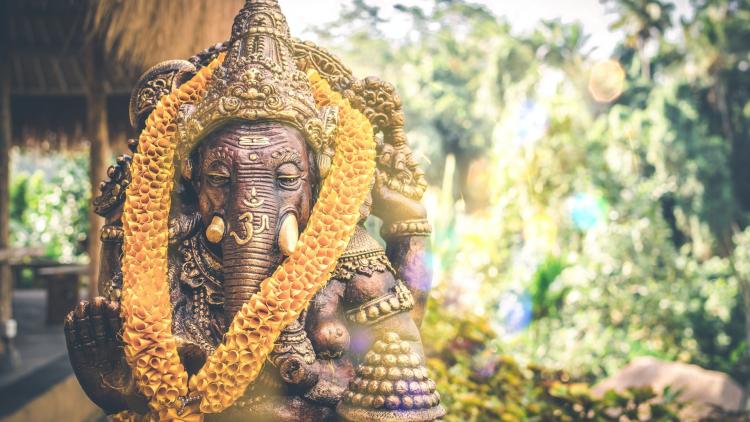R472 Classical Chinese Thought

Key information
- Status
- Module not running
- Module code
- 158000103
- FHEQ Level
- 5
- Credits
- 15
- Department
- Department of Religions and Philosophies
Module overview
This module is an introduction to the main themes, arguments and debates of classical Chinese thought. We will look at its initial formative period, approximately between the sixth and the third centuries BCE, later developments during the Imperial time, and the relevance and traces in modern and contemporary China.
The course will start with an opening lecture that will problematise the use of the term 'philosophy' to explain the Chinese context, and will look at China in its traditional features as well as in a comparative perspective with the Western history of ideas and theories.
The first part of the course will focus on the transmitted texts of the Masters (zhuzi 諸子), from Confucius to the Mohist school, Laozi, Mencius, Zhuangzi and Xunzi among others. Classes will look at these texts chiefly as the products of fluid communities of discourse rather than works of individual authorship. It therefore explores the textual construction of wisdom and authority over an extended period of time in China’s classical age.
The second segment of the course will explore later development of Confucian thought, including texts written by/for women, the formation of the Neo Confucianism (that started in the ninth century but developed especially around the twelfth century), and the New Confucianism (from the beginning of the twentieth century).
Topics include:
- historical, linguistic and conceptual issues in the study of classical Chinese thought;
- the nature, structure, formation, and chronology of the texts of the Masters;
- their core ideas and implied readerships
- their interpretation in the commentarial tradition and in modern scholarship;
- their significance in terms of modern categories of discourse such as ethics, logic, politics, psychology, cosmology, and religion;
- the forms of argumentation, rhetoric, and production of meaning
The module has no language prerequisites, as it is based on close reading and discussion of the texts in English translation. Wherever necessary, original Chinese texts will be compared, and linguistic explanations provided.
Objectives and learning outcomes of the module
On successful completion of this module, a student will be able to:
- identify the main textual sources of classical Chinese thought
- reveal a critical awareness of the linguistic, cultural and historical contexts;
- understand and analyse the main ideas of each text;
- articulate the significance of classical Chinese thought in terms of modern categories of discourse such as ethics, logic, politics, psychology, cosmology and religion
- analyse the structure of argument and the production of meaning in each text;
- critically assess the nature of the Masters literature and its place in the notion of world philosophies
- understand the development of Classical Chinese thought in the pre-modern and modern era
Workload
2 lectures per week.
Scope and syllabus
- Course introduction and preliminary reflections on Chinese history and main characteristics of Chinese thought
- From Divination to the Hundred Schools of Thought: Overvie
- Confucius and the Analects 論語
- Laozi and the Daodejing 道德經
- Reflecting on the Human Nature: Mencius, Gaozi, and Xunzi
- Zhuang Zhou and the Zhuangzi 莊
- Neo Confucianism: from Cheng Yi to Wang Yangming
- Confucianism for Women
- New Confucianism: from Xiong Shili to Mou Zongsa
- Confucian Thought in Korea, Japan, and Vietnam
Method of assessment
-
One Reaction paper of 1,000 words (30%
-
One Essay of 2,000 words (70%)
Suggested reading
- Graham, A. C. Disputers of the Tao: Philosophical Argument in Ancient China. La Salle: Open Court, 1989. [CC181.00901 /586601; CC181.00901 /586602; CC181.00901 /628749; CC181.00901 /857391]
- Ivanhoe, Philip J. and Bryan W. Van Norden (eds.). Readings in Classical Chinese Philosophy. 2nd ed. Indianapolis: Hackett Pub., 2006. [CC181 /992833]
- Schwartz, Benjamin I. The World of Thought in Ancient China. Cambridge, Mass. and London: The Belknap Press of Harvard University Press, 1985. [CC181.00901 /521033; CC181.00901 /621693; Ebook Central]
- Van Norden, Bryan W. Introduction to Classical Chinese Philosophy. Indianapolis: Hackett Pub., 2011. [Ebook Central]
- Loewe, Michael and Edward L. Shaughnessy (eds.). The Cambridge History of Ancient China: From the Origins of Civilization to 221 B.C. Cambridge: Cambridge University Press, 1999. [Ref CC931 /760292; Ref CC931 /931464; Ref CC931 /931465; Cambridge Histories Online]
Convenor
Disclaimer
Important notice regarding changes to programmes and modules


